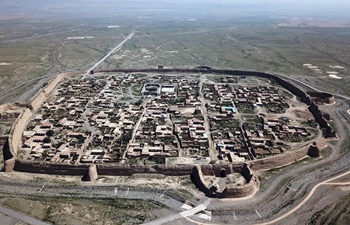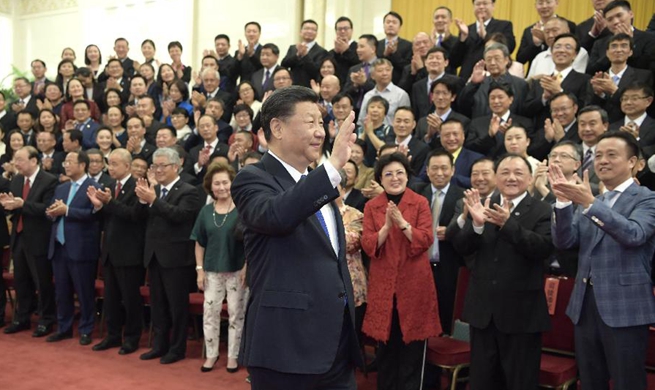HELSINKI, May 28 (Xinhua) -- The political prospects and challenges of the European Union (EU) were reviewed from a Nordic perspective on Tuesday in a seminar hosted by the European Commission Bureau in Helsinki and the Finnish think tank Magma.
Nils-Erik Forsgard, the director of Magma, expressed concern with the actual knowledge base about EU politics among the voters.
He said that the media focus on the "populist danger" had been so dominating that analyses of other groups had not been done that much. He took up the success of the Greens in the EU elections and questioned, as an example, how many voters in Finland or Sweden actually knew much about the Green agenda in continental Europe, beyond the climate policies.
Forsgard suspected that the idea of the Greens to close the refugee camps in Turkey and create a generous asylum system instead may not have been widely known. He also wondered how many of the voters for the Greens in Finland and Sweden are aware of the positive discussion of a federal Europe among the Greens in Germany and elsewhere.
Tove Lifvendahl, the editor-in-chief for political content in the Swedish daily Svenska Dagbladet, deplored that Swedish media have not bothered to assess in depth the work of politicians at the European Parliament, but have gone after small scandals such as travel costs.
She said that the role of the EU keeps being questioned in Sweden, but the major forest fires in Sweden last summer made a difference: People realized Sweden was getting practical assistance from other EU countries to counter the blazes.
The panel noted that in the wake of the election, the EU is increasingly split into cities and the countryside, with differing political affiliations.
Finnish veteran journalist Markus Leikola said the Greens have captured political majorities in cities and big division is between cities in Western Europe and the countryside of Eastern Europe.
Leikola pointed out that, for example, in Poland cities are center-left, while the countryside is predominantly value-conservative. And in Germany, Munich is very different politically from the surrounding Bavarian countryside.
FRAGMENTATION COULD WEAKEN FOREIGN POLICY EDGE
Juha Jokela, the program director of the Finnish Institute for International Affairs, said the political fragmentation of the European Parliament can weaken the foreign policy dimension of the Union.
He warned of the worsening position of small EU countries. If the EU foreign and security policy decision making does not become more efficient, the bigger member states might be going on their own. "This is a key question to smaller member countries, whether they are part of that."
Jokela noted that the unanimity requirement in the Council on foreign policy issues does exist, for understandable reasons, but a qualified majority system is being discussed.
Jokela said that there is "emerging understanding" of the situation and the implications great power politics could have on Europe. He did not expect major changes in the EU procedures, but some modest steps so that "member states would see the benefits of a more strategic foreign policy". He gave the trade policies, steered by the Commission, as an example.
Forsgard took up the impact of the population figures after the possible exit of the United Kingdom. The weight of the Mediterranean countries will increase, and this has an impact on the consensus and qualified majority decisions.













